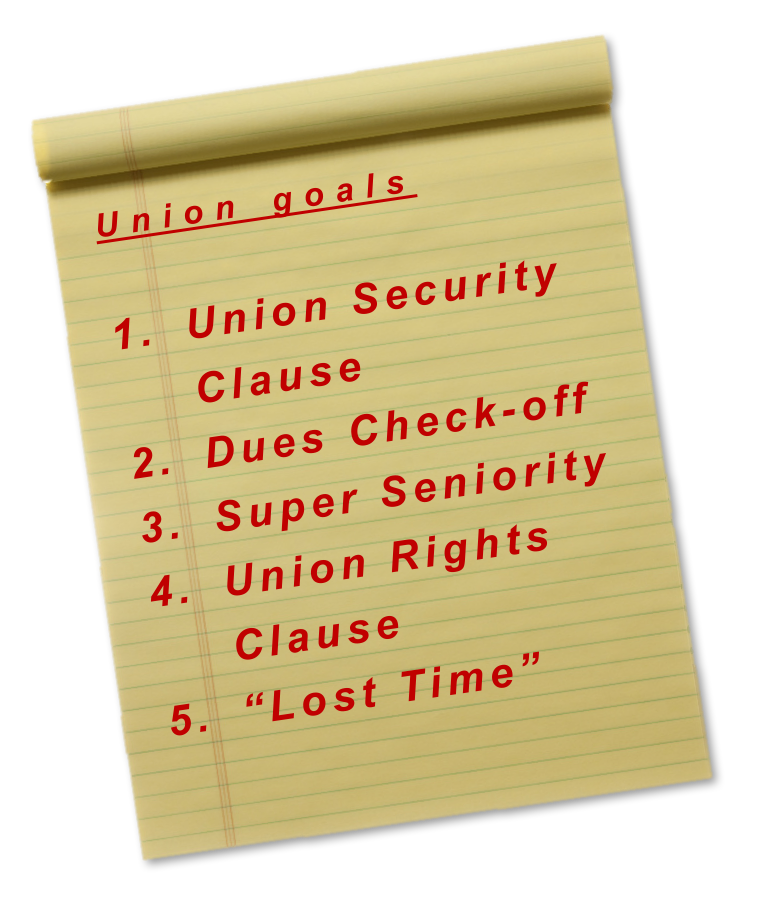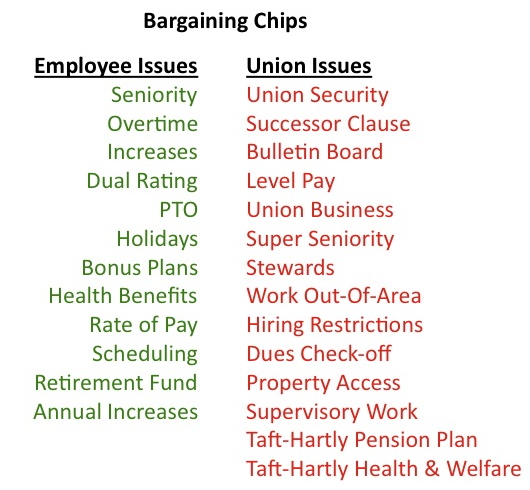I can’t lose in collective bargaining, right?
The Big Gamble
One of the standard promises of union organizers is better pay and benefits. They try to convince a group of employees that no matter what they have now, it will only get better if they “gang up together” and bargain as one large group. Unfortunately for the employees, that’s not how collective bargaining works. Here’s what the National Labor Relations Board says: “There is, of course, no obligation on the part of an employer to contract to continue all existing benefits, nor is it an unfair labor practice to offer reduced benefits.” MIDWEST INSTRUMENTS, 133 NLRB. NO 115
In other words, you could lose what you already have. The only guarantee a union can really give you is that you will have to pay union dues.

There are no guarantees in collective bargaining!

“Employees understand that a union cannot obtain increased benefits just by winning an election, but that benefits must be obtained through collective bargaining.” BURNS INTERNATIONAL SECURITY SERVICES, 256 NLRB NO. 165
The outcome of negotiations is unknown
“Collective Bargaining is potentially hazardous for employees and as a result of such negotiations, employees could wind up with less benefits after unionization than before.” COACH & EQUIPMENT SALES CORP., 228 NLRB No. 51
Negotiations could mean less benefits
You will not lose benefits because of union activity. But the outcome of negotiations is uncertain – you could get more, you could get less or you could stay the same (plus pay dues). There is no guarantee you’ll keep what you have now.

What Really Happens in Union Bargaining?
This website is provided as a resource for you and your family, as you consider whether or not to support union organizing efforts.
Whether to unionize is an extremely important decision. If voted in, a union would speak for you regarding all terms and conditions of your employment, including:
- your current and future pay
- the cost and structure of your health and other insurance plans, retirement plan and other benefits you currently enjoy
- your holidays, vacation and other forms of paid and unpaid leave
- whether many employment-related decisions are based on your merit, or simply upon your date of service
- whether you will have union dues deducted from your paycheck, and how much?
- the potential for strikes and possible permanent replacement during an economic strike